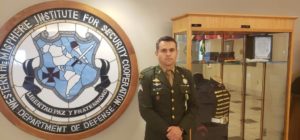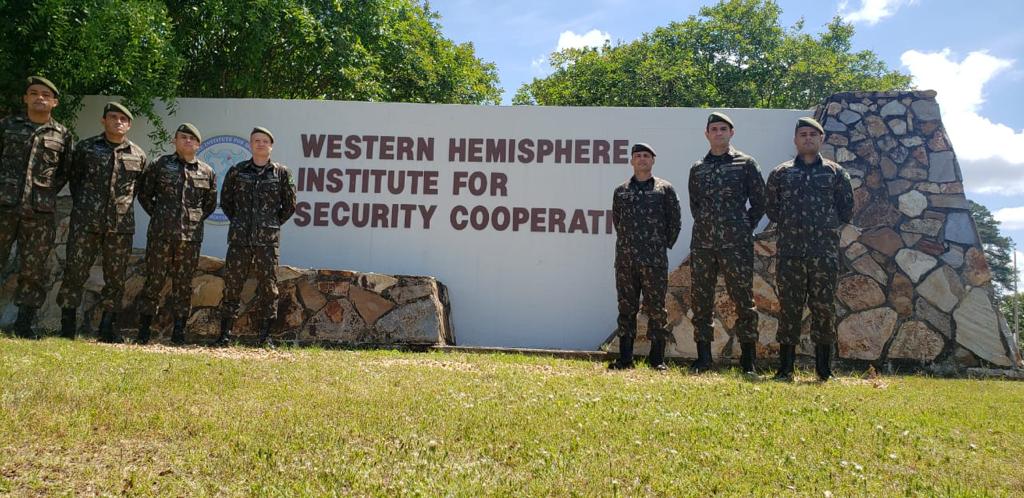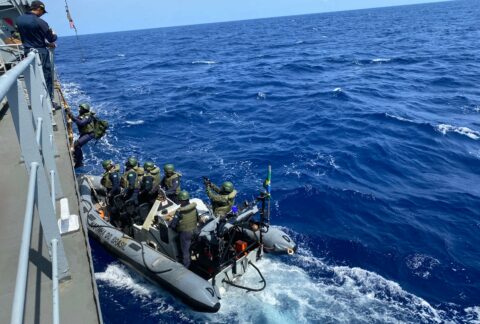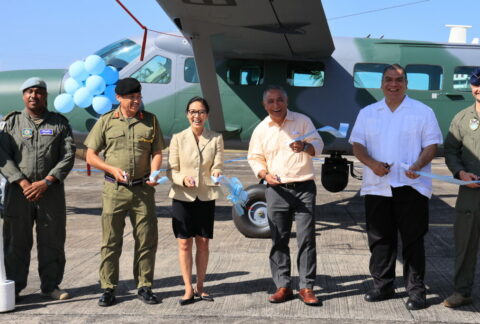Brazilian Army (EB, in Portuguese) service members achieved great results in the Noncommissioned Officer Professional Development (NCOPD) course at the Western Hemisphere Institute for Security Cooperation (WHINSEC). The course, held in Fort Benning, Georgia, concluded on June 24, 2021.
EB Staff Sergeants Paulo Henrique Barros, Cássio de Freitas, Erenilson Freitas, Thiago Rebonatto, Luiz Paulo, Robson Maciel, and Pablo Zian attended class with 22 other service members from Chile, Colombia, Costa Rica, Guatemala, Honduras, and Mexico. The Brazilians earned the seven top spots in the NCOPD course.
Staff Sgt. Paulo Henrique, who earned the top spot at the NCOPD course, told Diálogo that the Brazilians’ good performance at the end of the course was the result of careful selections of the service members who would take part in this mission. “We all placed first in our advanced training courses, and intense dedication was key to the Brazilians’ success,” he said. “Our study routine went beyond the classroom, and we often gave up rest and leisure activities for the sake of our career and profession.”

The service member emphasized the learning and improvements achieved during the course, especially regarding sergeant leadership in a war zone and in the understanding, planning and support of combat maneuvers. “I improved technically and professionally, with an emphasis on leadership and knowledge of the current operational environment,” he said.
Staff Sgt. Paulo Henrique works in Brazil as a supervisor in the Command and Services Battalion at the Sergeants at Arms School, in Minas Gerais. He believes one of the highlights of the NCOPD course was the opportunity to integrate with military personnel from other countries. “We had the unique opportunity to learn how foreign militaries operate on the world stage, how they are equipped, how they form, and how they use their human resources,” he said.
Course
In 10 weeks, the NCOPD course prepares service members for a leadership role at the platoon level, as advisors to the commander, and for other duties related to becoming first sergeants. The program is broken up into six modules: administrative, weapons handling, professional development, leadership skills, operations and doctrine, and combat.
“The course routine started at 5 a.m. with physical training. The theoretical activities took place during the day, from 8 a.m. to 5 p.m., and we were submitted to an evaluation at the end of each module,” said Staff Sgt. Paulo Henrique, who graduated with honors and received the award for best physical fitness. “The course certification was contingent on obtaining at least 70 percent on the physical examination,” he concluded.









